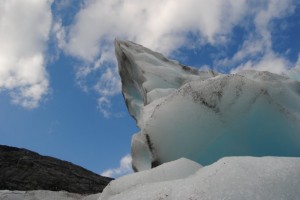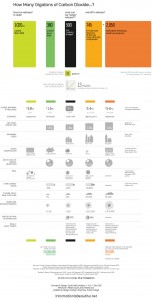 Scientist studying the ice in Antarctica have found that a very large area, the West Antarctic Ice Sheet, is melting at an accelerating rate, and has already reached a point of instability, where its melting will continue regardless of any actions we take to reduce the effects of global warming. It is past the point of no return, so to speak. The impact of this is expected to be a global rise in seal levels of several feet (up to 10 feet, potentially) over the next couple of centuries. Yes, that makes it a problem that won’t affect us, but we have a moral obligation to future generations to provide them with the same potential for prosperity that we enjoy.
Scientist studying the ice in Antarctica have found that a very large area, the West Antarctic Ice Sheet, is melting at an accelerating rate, and has already reached a point of instability, where its melting will continue regardless of any actions we take to reduce the effects of global warming. It is past the point of no return, so to speak. The impact of this is expected to be a global rise in seal levels of several feet (up to 10 feet, potentially) over the next couple of centuries. Yes, that makes it a problem that won’t affect us, but we have a moral obligation to future generations to provide them with the same potential for prosperity that we enjoy.
The cause of this melting is deep, warmer water being pulled to the surface by increasingly powerful winds circling the continent (which is generally believed to be caused by global warming). As far back as 1978, scientists were warning that global warming could lead to this…and now it’s happening (unless you’re a Republican with your head in the sand).
Read more at the NYTimes.


